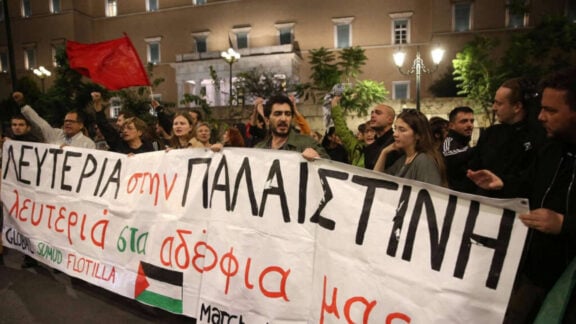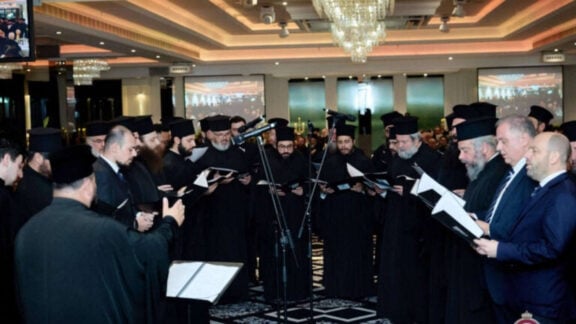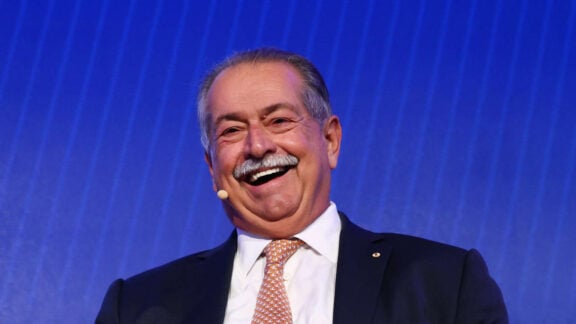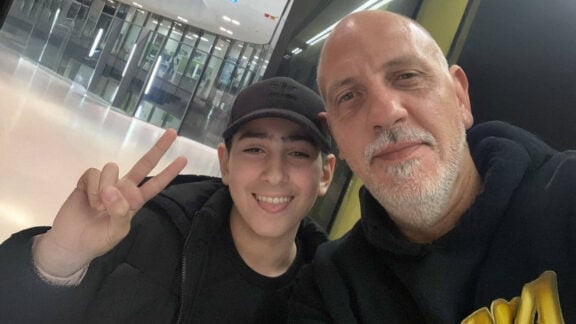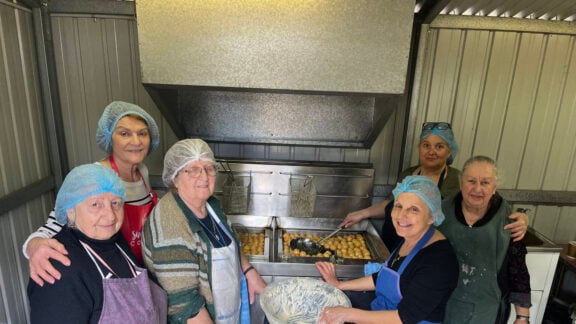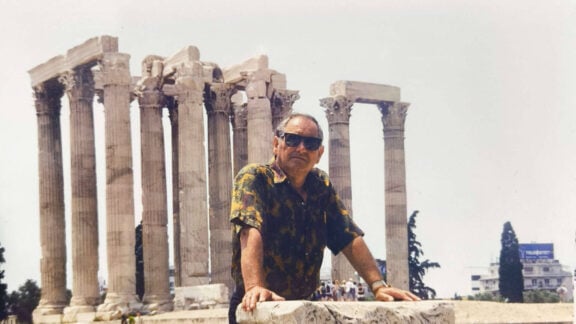The majority of the Greek Orthodox faith community across Australia has expressed support for the “Yes” vote in the upcoming referendum to be held on Saturday, 14 October.
The Prime Minister acknowledged the support of the Greek community speaking at the Clergy-Laity Assembly of the Archdiocese last week, and specifically praised Neos Kosmos, for endorsing the “Yes” campaign.
Meanwhile, on Friday, Imams in all mosques across Australia called on all Muslims in Australia vote “Yes.”
Mr Albanese attended a special event at a mosque in Lakemba, Sydney, similar to his visit to a Greek Orthodox church last week.
Among the various religious organisations that have expressed support for the “Yes” vote are the Executive Council of Australian Jewry, Anglican Church, Uniting Church, Hindu Council, and National Sikh Council of Australia.
“Next weekend’s referendum on the Constitutional recognition of Aboriginal and Torres Strait Islander people will be a unifying moment for our country. I am deeply moved by just how strongly the Muslim community of Australia has got behind it. The relationship between Muslims and the Indigenous people of this continent is one that goes back for centuries, long before European eyes saw this continent for the first time, there was a relationship. It began in northeast Arnhem Land with the Yolngu people and Makassar traders from Indonesia,” said the PM.
As early voting began, the prime minister categorically denied one of the distorted proposals circulating on the internet, which suggests that the United Nations (UN) is behind the referendum and wants to return land to indigenous peoples.

It is worth noting that Australians are asked to respond to the question of whether they support amending the Constitution to recognise the First Peoples of Australia by establishing an Aboriginal and Torres Strait Islander Voice. If the proposal is adopted, it will be the first time that they are officially referred to as a distinct community in Australia’s 122-year-old Constitution.
The only question posed in the referendum is as follows: “Proposed Law: To alter the Constitution to recognise the First Peoples of Australia and establish a voice for Aboriginal and Torres Strait Islander peoples. Do you approve this proposed amendment?”
“Let’s all advance reconciliation and unity on referendum day. And when we wake up on October 15, we will wake up to a nation that has not only shown respect to the oldest continuous culture on earth, that we have the privilege of sharing this continent with, we will wake up to an Australia that we’ll feel better about ourselves as well. Because we’ve acknowledged our history. Because we are, as a nation, prepared to move forward to that better future,” concluded Albanese.
Division in polls
The latest poll shows declining support (43 per cent down from 46 per cent in August) for the “Voice” proposal, with notable opposition in New South Wales and Victoria. To succeed the proposal needs to secure the majority of states, not only the most votes.
Debate on the referendum has revealed cracks even among Indigenous advocates. The left argue for a treaty, highlighting Australia’s unique status as the only former British colony without one, while conservatives want no change.
There has also been a rise of toxic, and often racist attacks on Indigenous people especially on social media. While those opposed to the proposal for a voice on the conservative side argue it divides the country through a special recognition to a group in the constitution.
If approved, legislative arrangements will be needed to define how the “Voice to Parliament” will operate.
Lawmakers say ‘Yes’ carries no legal risk
The powers of any voice to parliament in the constitution can be limited by Australian legislation and lawmakers will remain supreme, one of the nation’s eminent legal minds says.
The third clause of the amendment means the body cannot overpower parliamentarians, according to former High Court chief justice Robert French.
The clause says “the parliament shall, subject to this constitution, have power to make laws with respect to matters relating to the Aboriginal and Torres Strait Islander voice”.
Former High Court chief justice Robert French has allayed legal-threat fears over the voice.
This means lawmakers will be able to decide who makes representations and how they are made, Mr French argued on Friday, stating that Australian legislation can limit the powers of the “Voice” in the Constitution.
Opposition leader Peter Dutton argues for more details on the “Voice” proposal, while prime minister Albanese sees it as a unifying opportunity.

